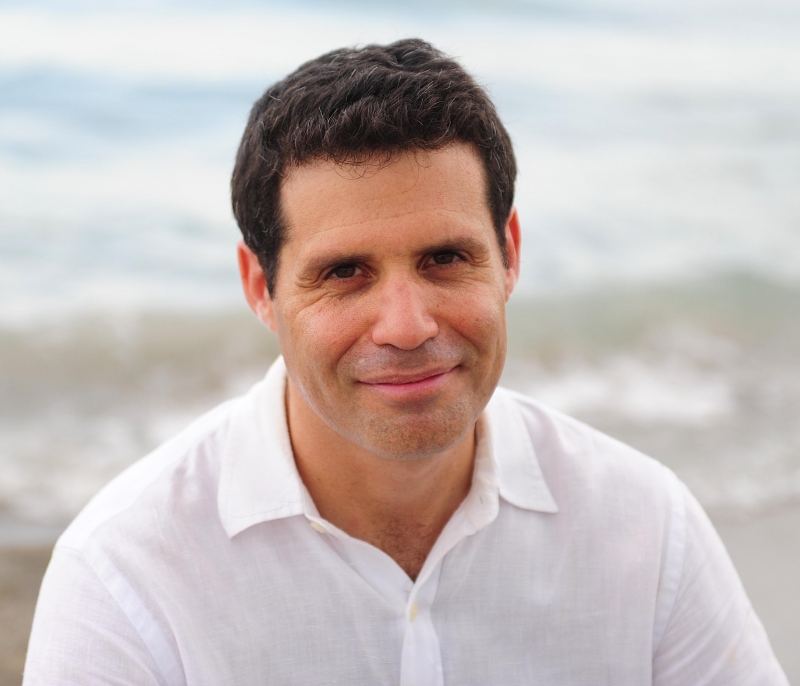How are Halloween & a Jewish Wedding Ceremony Connected?
How are Halloween & a Jewish Wedding Ceremony Connected?
 In the weeks leading to October 31 I'm often asked how appropriate it is for Jews to celebrate Halloween, considering its Pagan origin. There is still a debate among scholars about the genesis of this festival, yet many believe that it came from the Celtic festival of Samhain, which marks the end of the summer and the beginning of the winter, the darker part of the year. Samhain was seen as a time when the door to the Otherworld opened for the souls of the dead, and other beings such as fairies, to come into our world.
In the weeks leading to October 31 I'm often asked how appropriate it is for Jews to celebrate Halloween, considering its Pagan origin. There is still a debate among scholars about the genesis of this festival, yet many believe that it came from the Celtic festival of Samhain, which marks the end of the summer and the beginning of the winter, the darker part of the year. Samhain was seen as a time when the door to the Otherworld opened for the souls of the dead, and other beings such as fairies, to come into our world.
Regardless of the nature of the spirit's visit, whether friendly or harmful, this belief clearly goes against biblical law.
The Pagan origin of Halloween is for itself a reason for Jews not to participate in the celebrations. The Torah marks a clear theological, ethical and practical path for Jews to follow, and instructs us not to “walk in the paths” of others.
Another dilemma is the association of Halloween with witches and ghosts. Judaism has continuously opposed witchcraft or attempted communication with the dead since biblical times. Monotheism is the antithesis of magic. No hocus-pocus tricks can manipulate God to get unnatural results.
So if Judaism stands in such conflict with Halloween, why would my own children dress up and roam the streets with their friends collecting an insane amount of candy (that will magically disappear minutes after they go to bed)?
To answer that question, I turn to the Jewish wedding ceremony. No matter how traditional or liberal a Jewish couple is, the ceremony always concludes with the breaking of the glass. The rabbi often explains the custom as a way to remind us that happiness is never complete (either because of the loss of loved ones, or in more traditional settings, the destruction of the Temple). It is indeed a beautiful and meaningful tradition, only that the rabbi's explanation is historically inaccurate.
Smashing of glasses didn't begin with Judaism, and the reason behind it is closer to Halloween than to the Torah. In the Middle Ages people believed that demons attack us when we are less prepared, especially during happy occasions. Therefore, the smashing of glass was intended to trick the demons into believing that a catastrophe rather than a celebration was taking place. The demons would then leave the couple alone and do them no harm. In Germany, during the Middle Ages, the marriage glass was thrown against a special stone which was commonly embedded in the outside wall of the synagogue.
Given its etiology, should we abolish the ritual of breaking the glass? No rabbi of any denomination would dare to consider such a thing. It may have started with superstitions and Pagan ideas, but hundreds of years later it has evolved into something completely different. At the same token, it is undeniable that Halloween in its inception and first stages of evolution was offensive to Judaism. But the way it is celebrated in America these days is completely stripped of true belief in witchcraft and worshipping of the dead. If you are participating in Halloween activities, no need to worry about pagan beliefs, just remember to include a lesson on safety and the “wonderful” effects of consuming too much sugar during an evening of fun and mischief.
B’Shalom,
Rabbi Alon Levkovitz
Tue, October 28 2025
6 Cheshvan 5786
Upcoming Events
-
Wednesday ,
OctOctober 29 , 2025Mah Jongg
Wednesday, Oct 29th 1:00p to 4:00p
-
Wednesday ,
OctOctober 29 , 2025Adult Ed: Tough Conversations
Wednesday, Oct 29th 6:30p to 8:00p
-
Thursday ,
OctOctober 30 , 2025Canasta
Thursday, Oct 30th 1:00p to 3:30p
-
Friday ,
OctOctober 31 , 2025Shabbat Services
Friday, Oct 31st 6:30p to 7:30p
-
Saturday ,
NovNovember 1 , 2025Men's Club Weekly Walk & Brunch
Shabbat, Nov 1st 9:30a to 11:00a
-
Monday ,
NovNovember 3 , 2025Men's Monday Weekly Lunch
Monday, Nov 3rd 12:00p to 2:00p
-
Tuesday ,
NovNovember 4 , 2025Yoga with Yael
Tuesday, Nov 4th 10:00a to 11:00a
-
Tuesday ,
NovNovember 4 , 2025Choir
Tuesday, Nov 4th 6:30p to 7:30p
-
Wednesday ,
NovNovember 5 , 2025Mah Jongg
Wednesday, Nov 5th 1:00p to 4:00p
-
Wednesday ,
NovNovember 5 , 2025Adult Education: Great Jewish Debates
Wednesday, Nov 5th 6:30p to 8:00p
Update this content.
Come Together
Something meaningful and dynamic is happening here at Temple Beth Am. It springs from the warmth of our welcome and the energy of our actions. We call it: Kulanu - All of Us Together.
Join UsUpcoming Events
-
Wednesday ,
OctOctober 29 , 2025Mah Jongg
Wednesday, Oct 29th 1:00p to 4:00p
-
Wednesday ,
OctOctober 29 , 2025Adult Ed: Tough Conversations
Wednesday, Oct 29th 6:30p to 8:00p
-
Thursday ,
OctOctober 30 , 2025Canasta
Thursday, Oct 30th 1:00p to 3:30p
-
Friday ,
OctOctober 31 , 2025Shabbat Services
Friday, Oct 31st 6:30p to 7:30p
-
Saturday ,
NovNovember 1 , 2025Men's Club Weekly Walk & Brunch
Shabbat, Nov 1st 9:30a to 11:00a
Privacy Settings | Privacy Policy | Member Terms
©2025 All rights reserved. Find out more about ShulCloud

